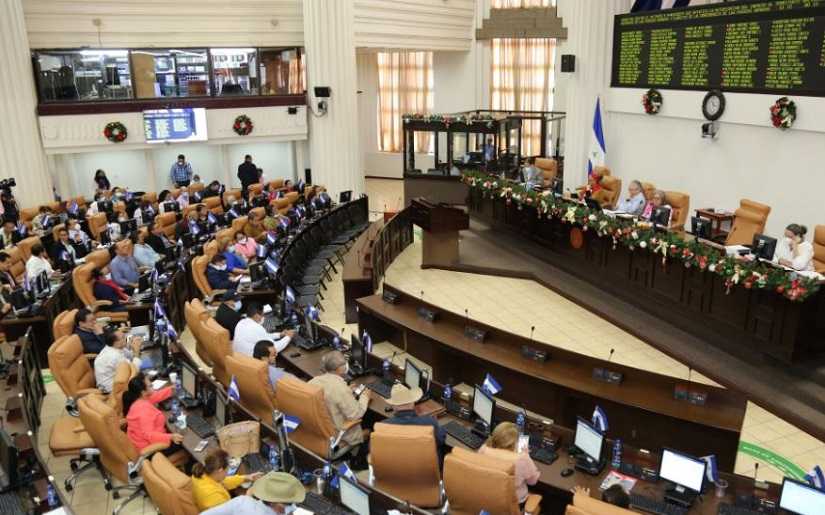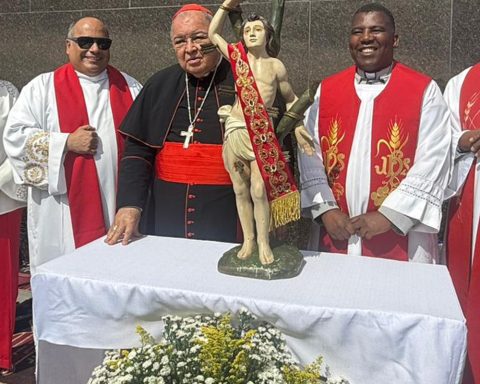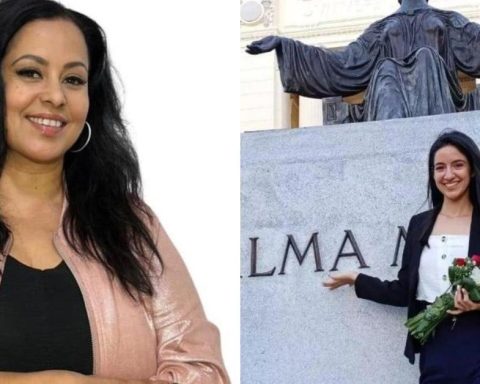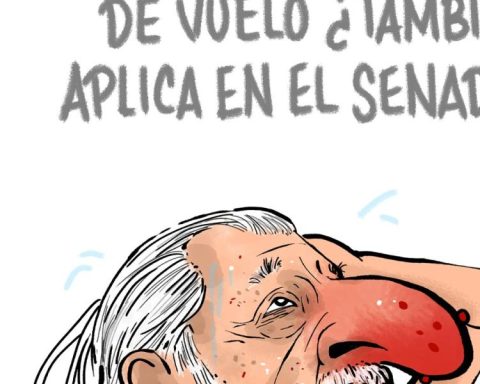The National Assembly, dominated by the Sandinista Front caucus, approved the reform of the General Education Law and the Law of Autonomy of Higher Education Institutions (IES), leaving the Central American University (UCA) out of the new National Council of Universities (CNU), which in addition to distributing among its members the constitutional 6% -including a private university-, will have the power to approve or deny career openings and academic programs; disrupting university autonomy.
With 75 votes in favor of the deputies of the Sandinista Front, the reform was approved, presented by the Ortega deputy and president of the Assembly, Gustavo Porras.
The Nicaraguan Liberal Party (PLC) bench abstained, after deputy Alvaro Rivera pointed out that the UCA is excluded from the initiative, which implies that the Jesuit university will no longer have the right to receive state funds from the 6% .
However, in article 56 of the approved reform, it directs that the CNU designate – without determining under what criteria – a “private university” to be part of it. According to specialists consulted by CONFIDENTIAL It is very unlikely that they will select the UCA, so the dispossession of the item from 6% would directly affect the future of hundreds of scholarship students.
The onslaught of the regime of Daniel Ortega and Rosario Murillo against the UCA has intensified since 2018, with the social outbreak of civic protests. The house of studies was a refuge for thousands of Nicaraguans who fled the massacre of May 30, in 2018; but in addition, his campus, shortly before the pandemic, was the only safe place where students protested against government authoritarianism.
The UCA has also denounced the human rights crisis that the country is going through. His stance in favor of the people and defense of his students has brought him retaliation by the Government, which has drastically reduced his budget allocation.
In the last four years he has stopped receiving 250.9 million cordobas, according to an analysis of CONFIDENTIAL and this year, he barely received one million cordobas, as part of the 6%.
The Ortega deputy, Walmaro Gutiérrez, defended the initiative, pointing out that it does not violate university autonomy, as higher education specialists have warned. But in addition, he assured that “it is logical that the resources of the people of Nicaragua be reinvested in the universities of the Nicaraguan people and that is what this reform is saying.”
However, paragraph nine of article 58 states that the CNU “may designate a budget item in favor of the private university” that it designates. According to the education specialist, Ernesto Medina, they could benefit an educational institution linked to operators of the Ortega regime.
This reform was approved a little over a month after the National Assembly canceled the legal status of five private universities in the country and the CNU occupied their facilities. The deputies were in charge of creating three new state universities with the confiscated premises and assets.
The Francisco Luis Espinoza Pineda National University; the National Polytechnic University (UNP) and the Ricardo Morales Avilés National Multidisciplinary University, created on February 7, 2022, are also part of the new CNU. This entity also selected the authorities in charge of the recent state entities.
The canceled universities were the Polytechnic University of Nicaragua (Upoli) – stronghold of the civic struggle of April 2018 -, the Nicaraguan Popular University (Uponic), the Catholic University of the Dry Tropics (Ucatse), the Nicaraguan University of Humanistic Studies (Uneh), the Paulo Freire University (UPF) and the Hispano-American University (Uhispam).
CNU will rule on interventions to the IES
Ortega made a change in the original initiative that gave the CNU complete power to “intervene” in HEIs based on three clauses, which, in the opinion of experts on the subject, harmed university autonomy and represented a throwback to the 1980s , when higher education was centralized.
In the text approved this Thursday, March 31, the CNU, now considered rector of the Higher Education Subsystem, was delimited “to rule on the intervention of HEIs.”
According to Medina, the CNU reform practically “is creating a new ministry,” which recalls the centralization of higher education in the 1980s, through the National Council for Higher Education, considered an instrument to suppress the autonomy of the universities, at that time, in favor of the revolution.
Now, the interest is “to subject the universities to total party control, which also means the total loss of university autonomy,” he warned.
For the jurist and academic, Dr. María Asunción Moreno, the regime intends to “legalize control over public universities, through the elimination of university autonomy and academic freedom, and in this way subject the universities to the total domination of the regime”.
















